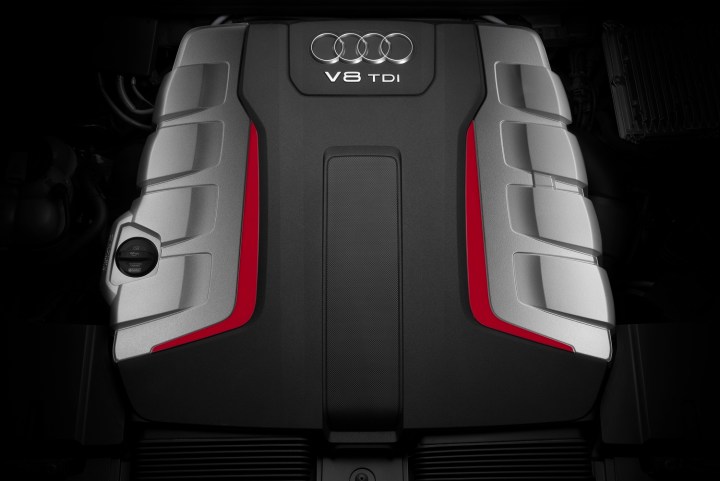
“It would be very difficult to justify the huge investment in another new V8 because of the cost of developing electric drivetrains and battery packs. You have to ask what is the best use of investment money,” explained an anonymous inside source in a recent interview with British magazine Autocar.
The source added that Audi hopes battery-electric vehicles will make up anywhere between 25 and 35 percent of the cars it sells by the year 2025. The company’s current lineup doesn’t include an all-electric car, so the technology needs to be developed from scratch. Luckily, Audi can share the cost burden with other Volkswagen-owned firms.
Fear not, big displacement fans, Audi’s V8 engine still has several years ahead of it. The diesel-powered variant of the engine (pictured) was just introduced under the hood of the SQ7 TDI, and it will be found between the fenders of the brand new second-generation Porsche Panamera as early as next year. And while we’re unlikely to see the 4.0-liter TDI mill in the United States for obvious reasons, a gasoline-burning variant of the eight will power upcoming Audi, Porsche, and even Bentley models for years to come.
Read more: Can Audi’s sharp new A5 coupe lure buyers out of BMW showrooms?
Other carmakers have already sent the V8 engine to the pantheon of automotive history. Notably, Volvo has vowed to only build power-dense four-cylinder engines, and to rely on electrification when extra power is needed. On the other hand, Dodge appears committed to keeping the eight-cylinder alive for as long as possible. The next generation of the vaunted Hellcat V8 will allegedly pack 750 horsepower when it lands in 2019.
Editors' Recommendations
- Audi Q6 e-tron ushers in the automaker’s next EV phase
- Audi ActiveSphere concept is part luxury sedan, part pickup truck
- Denon announces a trio of new 8K A/V receivers starting at $449
- Audi’s SkySphere electric roadster has shape-shifting superpowers
- The Sonos-Audi partnership isn’t as exciting as we’d hoped




